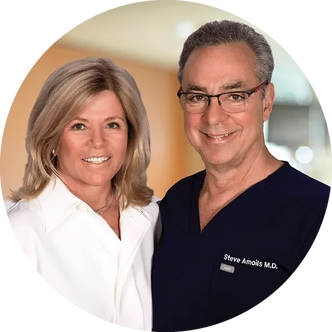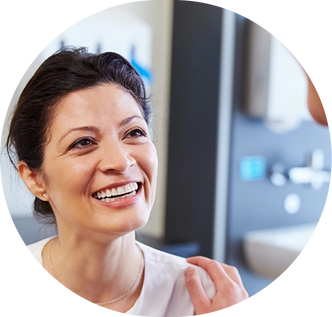Have you encountered persistent pain, stiffness, or postural issues that never seem to improve? Rolfing therapy, a specialized form of bodywork, may offer the solution you’ve been searching for.
Unlike traditional massage, Rolfing focuses on the fascia—your body’s connective tissue—helping to restore alignment, ease movement, and promote long-term relief from tension.
At AIM For Wellbeing, we understand the profound connection between physical structure and overall wellness, offering Rolfing therapy as part of a comprehensive approach to mind-body health.
The Foundations of Rolfing
Developed by Dr. Ida Rolf
Rolfing gets its name from its creator, Dr. Ida Rolf, a biochemist whose groundbreaking work in structural integration began in the mid-20th century.
Dr. Rolf’s scientific background drove her to explore how the body’s structure affects overall function. She believed that misalignments in connective tissue lead to physical discomfort and inefficiency.
Her method of realigning the body wasn’t guesswork but a carefully developed process rooted in physiology and biomechanics. Over decades, Rolfing has grown into a respected therapy practiced worldwide.
Fascia: The Forgotten Tissue
Fascia, often overlooked in discussions about wellness, is a web-like tissue that surrounds and supports muscles, bones, and organs. Imagine it as the body’s internal scaffolding, holding everything in place while allowing flexibility and movement.
However, when fascia becomes tight or stuck—often due to injury, stress, or poor posture—it can lead to pain, stiffness, and limited range of motion. Rolfing focuses on releasing these restrictions, helping the body regain its natural fluidity.
How Rolfing Works
The Ten-Series Approach
Rolfing is not a one-off solution. It typically follows a structured 10-session framework, with each session addressing specific areas of the body. The initial sessions focus on surface-level tensions and improving breathing.
Gradually, the sessions progress to deeper layers of tissue, targeting long-standing misalignments. By the end of the series, the body is brought into greater balance, allowing for improved function and comfort.
Hands-On Techniques Used
Unlike a relaxing massage, Rolfing employs deliberate, slow, and sometimes deep pressure.
Practitioners use their hands, knuckles, and elbows to work through layers of fascia, releasing areas of restriction. The goal isn’t just relief but a longer-lasting resolution by realigning your body’s structure.
Key Benefits of Rolfing Therapy
Postural Realignment & Pain Relief
Poor posture, repetitive movements, or lingering injuries can create chronic pain and tension.
Rolfing alleviates these issues by correcting misalignments at their source. It’s especially beneficial for those who suffer from long-standing discomfort in the back, neck, or shoulders.
Athletic Performance & Body Awareness
Athletes frequently use Rolfing to enhance performance and prevent injuries. By improving alignment and body awareness, they can use their muscles more efficiently.
This therapy also develops proprioception—a heightened sense of how your body moves in space—making it invaluable for improving coordination and avoiding overuse injuries.
Emotional and Stress Relief
Your body holds emotional stress, quite literally, in its tissues. Fascia can store tension from unresolved emotional or physical traumas.
Rolfing helps release this tension, often leading to emotional breakthroughs and a profound sense of lightness. Clients frequently report feeling both physically and emotionally “freed” after sessions.
The Difference Between Rolfing and Deep Tissue Massage
Contrast in Techniques
While Rolfing and deep tissue massage both involve hands-on approaches, their goals differ significantly.
Deep tissue massage focuses on relieving muscular tension on a surface level. Rolfing, in contrast, aims to reshape your body’s structural alignment, providing more lasting results.
Why It Requires a Series
Structural change doesn’t happen overnight, which is why Rolfing is offered as a 10-session series. Each session builds on the previous one, systematically addressing imbalances.
At AIM For Wellbeing, we respect this process, ensuring every client receives thoughtful, individualized care.
Is Rolfing Right for You?
Who Benefits Most
Rolfing is ideal for individuals dealing with chronic pain, limited mobility, or postural issues. It’s also a great resource for athletes, dancers, or anyone recovering from injuries. Even desk workers burdened by long hours of sitting can find relief in this method.
What to Expect in a Session
Before the hands-on work begins, your practitioner assesses your posture and movement. Sessions are tailored to your unique needs and goals. Although the process can feel intensive, it is always conducted with care to ensure your comfort.
Realign Your Body, Realign Your Life at AIM For Wellbeing
At AIM For Wellbeing, we offer Rolfing therapy as part of a complete wellness approach. Our specialists are trained to work with your body’s unique structure, creating a care plan that goes beyond symptom management.
We believe in nurturing healing from the inside out, offering you a space where transformation happens not just physically, but emotionally and energetically.
Conclusion: Begin the Transformation Your Body Has Been Waiting For
Rolfing is much more than bodywork—it’s an entire reset for your physical and emotional well-being. By addressing the root causes of pain and alignment issues, Rolfing helps you move better, feel lighter, and achieve clarity on many levels.
At AIM For Wellbeing, we’re here to guide you through this powerful healing process. Contact us today to book your Rolfing session and start your transformation.




